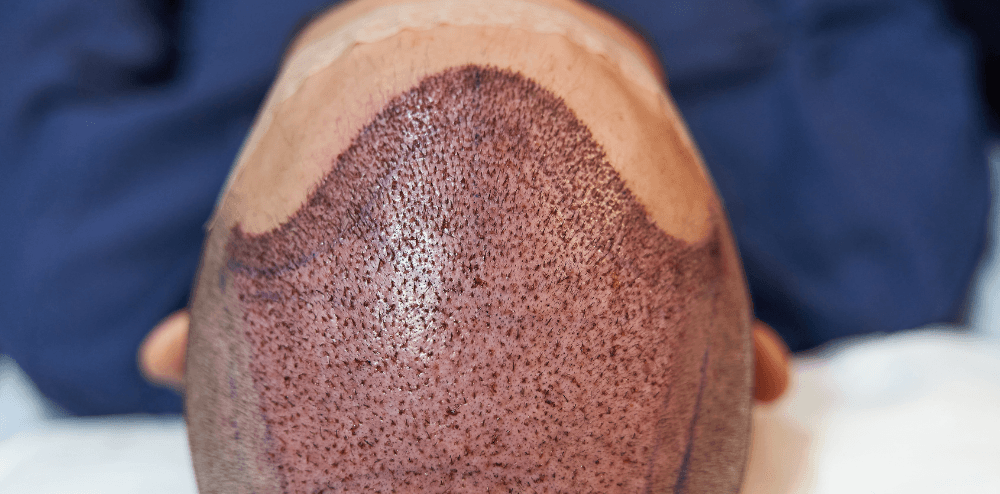Baldness is a condition that causes hair loss and affects millions of people all over the world. Although heredity genetics plays a role in most cases of baldness, there are other factors that can play a role as well. This article will explain what causes baldness and who is at risk for developing the condition.
Genetics and Baldness
Hereditary baldness occurs when the condition is passed down from one family to another. Androgenetic alopecia, the most common kind of baldness, is brought on by an inherited susceptibility to the effects of male hormones. Androgenetic alopecia is just as common in men as it is in women. There is a correlation between a family history of baldness and your own risk of going bald.
Baldness and Hormones
Baldness is also strongly influenced by hormones. Androgens like testosterone can reduce the size of hair follicles, leading to thinning hair. Miniaturization causes hair to become finer, weaker, and eventually fall out. Hair thinning can also be a symptom of a hormonal imbalance, such as that which occurs during pregnancy, menopause, or thyroid disease.
Lifestyle Factors and Baldness
Stress, smoking, and an unhealthy diet are all lifestyle factors that have been linked to male and female pattern baldness. The hair-growth cycle can be thrown off by stress, leading to premature hair loss. Smoking causes hair loss by damaging hair follicles and decreasing blood supply to the scalp. Hair loss can also be caused by a diet deficient in iron, zinc, and vitamins A, B, C, and D.
Baldness and Health Issues
Hair loss can be brought on by medical issues as well. Hair loss in patches is a symptom of alopecia areata, an autoimmune condition. Hair follicles can be damaged by scalp infections like ringworm and folliculitis, both of which can result in hair loss. Hair loss is a common side effect of several medical therapies, including chemotherapy and radiation.
Medication-Induced Hair Loss
Hair loss is a common adverse effect of some drugs. Antidepressants, beta-blockers, and blood thinners are just a few examples. If you’re losing your hair and are taking medication, talk to your doctor about the possibility that the two are related.
Baldness: Its Causes, Diagnosis, and Treatment
While baldness cannot always be prevented, there are steps you can take to reduce your risk of getting bald. You can help your hair stay healthy by following a healthy lifestyle, dealing with stress effectively, and avoiding damaging hair treatments. Baldness drugs include minoxidil and finasteride, and other treatments include scalp microblading, hair transplant surgery, and even beard transplant surgery. The appropriate course of action for your individual case can be suggested by your doctor.
Consulting a Hair Specialist
It is crucial to speak with a hair specialist if you are experiencing hair loss. An expert in the field of hair care will be able to diagnose the root cause of your hair loss and advise you on the best course of action to take. Our hair transplant experts in Antalya are here to help you feel like yourself again by restoring your hairline.
Is Baldness Linked to Genetics?
Hereditary factors are a major contributor to male pattern baldness. Having a family history of baldness—whether from your parents, grandparents, or someone else—increases your risk of developing baldness yourself.
The AR gene and the SRD5A2 gene are the two primary culprits in male-pattern baldness. Androgen receptor (AR) is a protein that is produced from the AR gene and is involved in hair growth. Dihydrotestosterone (DHT) is a hormone that causes hair loss, and it is produced when testosterone is converted by the SRD5A2 gene into 5-alpha reductase.
Although it’s more frequent in men, women can also suffer from inherited baldness. Both genetics and hormonal shifts play a role in the development of female-pattern baldness. A broadening of the portion and a loss of density at the crown are the first visible signs.
Other Possible Causes of Hair Loss
Although heredity is a major influence in hair loss, it’s not the only possible cause. Among these are some of the following:
Age: As we age, our hair naturally becomes thinner and more brittle, leading to hair loss.
Hormonal changes: Changes in hormones, such as during pregnancy or menopause, can cause hair loss.
Medical conditions: Certain medical conditions, such as thyroid disease or alopecia areata, can cause hair loss.
Medications: Some medications, such as chemotherapy drugs, can cause hair loss as a side effect.
Poor nutrition: A diet lacking in essential nutrients, such as iron or protein, can lead to hair loss.
Can Hair Transplants Help With Genetic Baldness?
Those suffering from hereditary hair loss may find relief with a hair transplant. Hair grafts are harvested from the back of the head or other places of the scalp or beard where hair growth is still active and then transplanted to the scalp areas where hair growth has stopped or is thinning.
Modern hair transplant techniques have advanced to the point that they can successfully replicate the appearance of a patient’s own hair. Most patients are able to resume their regular schedules just a few days after the outpatient treatment.
Note that hair transplants cannot reverse hereditary hair loss. They are effective in regrowing hair in patches where it has thinning or stopped growing, but they do not prevent further hair loss. It’s also vital to talk to a hair transplant expert to see if you’re a good candidate for a hair transplant, as not everyone can benefit from the treatment.
Conclusion
Baldness is a common hair loss problem that can be caused by various factors, including genetics, hormones, lifestyle factors, medical conditions, and medications. Although there is no guaranteed way to prevent baldness, there are treatments that can help bring back your hair and your self-esteem. Our Antalya hair transplant clinic is committed to providing individualized care and the highest quality services to each of our clients.
Despite the fact that baldness is an unpleasant and often unsightly affliction, it is shared by many people. Whether your hair loss is hereditary, the result of a hormone shift, or due to some other circumstance, there are effective treatments available.
Estevitalya Hair Transplant Clinic in Antalya provides a variety of options for patients looking to regain a head full of hair and their self-esteem. Our team of experts is here to help you look your best with a variety of services, including hair transplant, beard transplant, and eyebrow transplant.
We recommend that anyone experiencing hair loss get in touch with us for a consultation to go over their hair restoration options. Each of our patients will receive an individualized treatment plan and practical answers to their problems. Stop letting baldness hold you back and let us help you get the hair you’ve always wanted.









